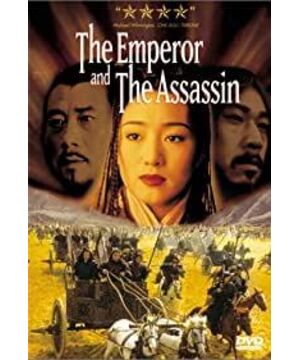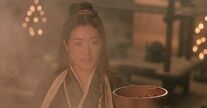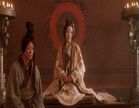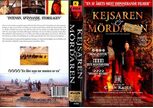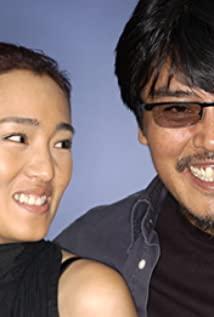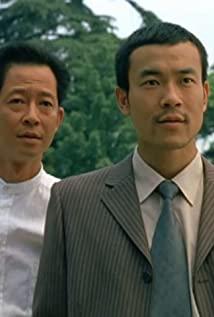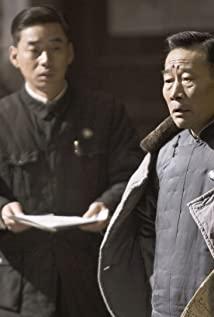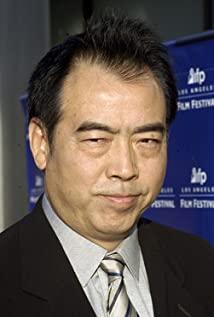Vile means can never achieve lofty ideals.
This is what Chen Kaige said in an interview with the media about the theme of the movie "Jing Ke Assassinating the King of Qin". He proudly mentioned many times on different occasions that he was proud of "Jing", and even quoted the late Italian director Bernardo Bertolucci's words: I think "Jing Ke Thorn Qin King" is an underrated film The Cannes judges did not understand his work. A famous director mentioning a film so proudly shows the importance of this film in the director's heart. What is interesting is that although "Jing Ke Assassinating the King of Qin" is a classic work full of passion, well-made, and ancient in the pre-Qin period today, Director Chen's way of explaining the theme of a work of art in front of the media is indeed a little bit. Appears to cherish feathers. To know that a work of art has been shot, all interpretations and feelings should be left to the audience and film critics, and the director should not say too much. Director Chen's gesture of defending his film, I actually saw the shadow of politicians defending their political achievements. If we connect the background of Chen Kaige's own existence and the historical content of "Jing", we will find very interesting and consistent political and cultural meanings in combination with the current context.
Children of the Cultural Revolution--Values
In her article "Broken Bridge of History", the famous film critic Dai Jinhua called the fifth-generation directors "sons of the Cultural Revolution". They were the same age as the Republic and experienced those passionate years firsthand. Under the "stare" of the leader's eyes, they made a great leap forward together with the country. They have endless pride and ambition to express in their hearts, and are eager to build great achievements. Director Chen Kaige came from a film family and is a standard "second generation of art". His articles are splendid , exporting into a chapter, he was admitted to the Beijing No. 4 Middle School, where the second generation of red and elites gathered at a young age. But he also experienced the most turbulent era of the Cultural Revolution. During the Cultural Revolution, everyone was in danger. Chen Kaige even criticized his own father and saw it. The dark side of human nature, these complex emotions became the foundation of his future film creation. If we conduct a psychological analysis of Chen Kaige, we will clearly find that there are two opposing desires, or two opposing values exist in his In my heart, one is the pursuit of unity, orderliness, and a sense of collectiveness, and the other is the opposite, the desire to write individual values.
This is why we will see the grand theme and the source of production in Chen Kaige's future creations. He constantly praised the grandeur, and questioned himself about it; This swing is reflected in the values of his different films, and possibly in the same film. The former is like the contrast between the film themes of "Farewell My Concubine" and "Mei Lanfang". The focus of Farewell My Concubine lies in the praise of Cheng Dieyi's cultural martyrs (that is, the praise of individual values), while "Mei Lanfang" moves towards the defense of Mei Lanfang's moderation (that is, for collective desires) catering). The latter, as in "The Legend of the Demon Cat", Chen Kaige sang the grandeur of the Tang Dynasty, the collective intoxication of "all directions come to the dynasty, the guests are like clouds", and satirized the illusoryness of this fantasy. Fatal symbols such as "Buddha" disintegrate the established meaning.
The contradictory qualities of grandeur and tragic, ideal and reality are very interesting and director Chen Kaige in one. Another paradox in him is his contradictory attitude towards culture. In what he considers the best work "Kid King", he expressed a negative attitude towards words and culture: at the end of "Kid King", the old pole left a sentence to Wang Fu: "Wang Fu will do nothing in the future. Copy, and don’t copy the dictionary.” This kind of rebellious attitude towards culture forms a strong contrast with his own self-positioning. He speaks out into chapters and has deep attainments in classical poetry and culture. He has expressed images of traditional culture in films many times, and quoted scriptures everywhere in interviews. . This contrast has just become another aspect of Chen Kaige's contradiction.
Sons of the Cultural Revolution--Methodology
The environment in which a person lives as a teenager determines not only his values, but also his behavioral characteristics, means and styles (methodology). Methodology is inherently unified with values, and what kind of values determines what kind of methodology. In China before the reform and opening up, radio, big-character posters, quotations, red flags and other political symbols occupied every corner of everyone's life. Chen Kaige made a very vivid description in his autobiography. From this point of view, it is not difficult to understand that Director Chen's defense of his film will have the shadow of a politician.
Under the leadership of great leaders, the new republic is burning with passion, and everyone has a beautiful dream in their minds. This utopian dream is based on ignoring objective laws, in other words, believing that subjective will can overcome objective laws. The generation influenced by Chairman Mao deeply disregarded the rules and had great ambitions to establish a new social system. They are always restless to challenge the existing rules with subjective rules, they only believe that Chairman Mao and themselves are absolute authority, look down on everything, and revel in the power of collectivism. They believe in eliminating natural disparities and achieving absolute fairness.
This acting style and characteristics are deeply imprinted on director Chen Kaige. Not only reflected in his films, but also outside of his films, the crew of Chen Kaige's films is very militarized and authoritative. The big scenes all mobilized the soldiers of the relevant army to perform, so that Minglager, the director of "The English Patient", was amazed. Director Chen Kaige is the absolute authority of the crew, often making noise on his set. His judgments on subject, script, and starring are autocratic. Later, the famous screenwriter Lu Wei and Chen Kaige parted ways. Lu Wei said: Director Chen Kaige will not listen to others after his success.
In the variety show
Son of the Cultural Revolution--Fate
The partial overlap of values and methodology makes Chairman Mao and the generation he influenced have a fatalistic similarity in the life trajectories.
In 1945, the famous democrat Huang Yanpei proposed the famous historical cycle law when he visited Yan'an. He said: "I was born for more than 60 years, but what I have heard and seen with my own eyes is really the so-called 'the prosperity is also supported, the death is also sudden', one person, one family, one group, one place, even one In the country, many units failed to escape the dominance of this cyclical rate. Most people were attentive at the beginning, no one was careless, no one did not work hard, maybe at that time was difficult and hard, only to find a life from the death. Then the environment gradually improved, and the spirit It was gradually let go. Some were naturally inert after a long period of time, and the minority developed into the majority, and when the ethos was developed, even with great force, it could not be reversed, and it could not be repaired. There were also because the area expanded step by step, and its expansion Some are driven by natural development, some are driven by the desire for achievement, and forced to develop. When the cadres and talents are gradually exhausted and difficult to cope with, the environment becomes more and more complicated, and the control force inevitably tends to be weak. In the history of the Ministry of History, there are also cases of 'political laxity and success', 'people perishing and government interest', and 'seeking honor and taking shame'. In short, we have not been able to jump out of this cycle." After hearing this, Chairman Mao Zedong replied: "We have already If a new path is found, and it can jump out of this historical cycle rate, this new path is democracy, and as long as there is supervision by the people, the government will not perish."
Later, Chairman Mao Zedong's ruling path went in a direction that was contrary to his ideal world of democracy. Human rights, laws, and culture were severely damaged by violence during the Cultural Revolution. The Gang of Four preaches a cult of personality, where the individual is above the law and rules, and the rules are rewritten by individuals and authority at any time. This disunity of ideals and means, that is, disunity of values and methodology, has caused a certain degree of historical pain.
The initiation of the Cultural Revolution was to some extent a self-revolution by Chairman Mao Zedong, as a leader with a firm proletarian stand, to the bureaucratization of the proletarian regime he established. He saw the trend of class differentiation in New China again, and he saw the possibility of losing the interests of the proletariat he represented. He chose an authoritarian, an undemocratic, a violent revolution that he was good at to save the shattered dream of absolute justice. Even he didn't hesitate to hit himself. This excessive belief in personal ideals made him abandon the observance of democratic rules. At this time, his method (methodology) and democratic ideals gradually drifted away.
A person is inherently complex, and the initiation of the Cultural Revolution must have the purpose of coping with the trend of bureaucratization. But personal feelings can also influence a person's decisions. The author believes that the choice of non-democratic means is unified in their personal feelings and personal ideals, and even their desire for rights.
From a psychoanalytic point of view, the more fearful a person is, the more opposing side, and also the more longing side in his heart. This kind of cognition is similar to the Taoist theory of yin and yang. Rights are a thing that every Chinese need to take a sober look at, even great people are not exempt.
In Chen Kaige's films, we can see his love-hate attitude towards rights many times.
Chairman Mao Zedong, a brilliant and brilliant all his life, as the core figure of the Communist Party, led the people to overthrow the corrupt Kuomintang government and established the People's Republic of China, freeing the Chinese people from the fate of being oppressed and humiliated by foreign powers since modern history, and embarking on the road of national self-improvement . Later, its historical merits were followed, and it was evaluated as 73% of merits and demerits. Chairman Mao Zedong did not seem to have jumped out of the historical cyclical law. His contributions to the country in his early years were indelible, but his mistakes in his later years seemed to confirm what Huang Yanpei said.
If the Cultural Revolution is an administrative error of Chairman Mao Zedong, then "Wuji" can be called the Cultural Revolution of Chen Kaige's artistic creation. Chen Kaige's younger brother Xu Haofeng wrote in his evaluation of "The Promise": "Chen Kaige was already a cultural icon in the 1980s, and he made brilliant cultural criticisms in "The Yellow Earth" and "Kid King". To make a myth, we must make a general reckoning of the five thousand years, at least this one hundred years, to find out the inner secrets of warlords fighting to go to the mountains and the countryside, and going to the sea to be laid off.” Chen Kaige once said in an interview: I am afraid of vulgarity myself. In "The Promise", Chen Kaige's ambition reached its peak. Judging from the finished film of "The Promise", he has no care or effort in all aspects of clothing, styling, actor configuration, theme expression, and the use of lenses. But "The Promise" was deformed by excessive pressure, and the reputation that "Farewell My Concubine" had built up for him was destroyed by "The Promise", and overnight, he almost became the target of the masses' anger towards the elite.
"His prosperity also flourishes, and his death also suddenly disappears." This fateful trajectory applies to Chen Kaige, Jiang Wen, and the proud "son of the Cultural Revolution" who has lived through the fiery era.
Fable of Qin Shi Huang
"The Promise" is a work in which Chen Kaige's fables have reached the extreme. The story takes place in an overhead world, and the lost flesh and blood of history and reality has become a speculative machine stacked with symbols. But "Jing Ke Assassinating the King of Qin" is an outstanding work by Chen Kaige that perfectly combines his own speculation and film sensibility. He set his sights on the Spring and Autumn Period and the Warring States Period more than 2,000 years ago, which was the nascent age of the Chinese nation and the age when the rules of power were just established. good material.
For the shaping of Qin Wang Yingzheng, Chen Kaige followed Sima Qian's description of Qin Wang in "Records of the Grand Historian". At the same time, he added his own imagination to shape the King of Qin into a neurotic, and the inner conflict became a mortal man. Obviously, Chen Kaige had a very big projection on King Qin, with extremely complex emotions, and even made Jing Ke's character even look a little thin. King Qin began to be ambitious and ambitious, and he promised to save the people of the world, but in the later struggle for power, he gradually lost the brilliance of human nature. In order to prevent Zhao's children from taking revenge, he gave up his original promise to save the world and killed innocent people indiscriminately. This is a typical example of ideals being defeated by reality. Humanity was abandoned and the world was exchanged in this way. Can it be said that the ideal has been realized? So humanitarians like Jing Ke kept rising up against tyranny.
The King Qin in the movie "Jing Ke Assassinates the King of Qin" is also a person whose values and methodology are not unified. Ying Zheng's purpose is to achieve the unification of the world and the peace of the people. The last method he used was killing, which is the disunity of world view and methodology (this method and method are inherently unified with another value in Ying Zheng's heart, that is, personal grudges, personal instincts)
In "Jing Ke Assassinates the King of Qin", Chen Kaige established a historical model and historical fable of "oppression-resistance". This model is not superficial, but flesh-and-blood, three-dimensional and complex. The totalitarian ruler is not a simple villain, but is extremely struggling and is alienated by power step by step.
If we look at history, this concept of oppression and resistance seems to exist deeply. In the subconscious of the Chinese people, the replacement of each dynasty is the extreme corruption of the previous dynasty, ending with violent resistance, and the new regime established by the rebels They waited until they were corrupted and were violently overthrown by the next rebel. This kind of brutal consciousness was deeply embedded in the cultural concept of the Chinese people. The Chinese lack the awareness of rules and the spirit of contract, and lack self-discipline.
At the end of "Jing Ke's Assassination of the King of Qin", it seems that Chen Kaige can't give the answer to the cyclical law of history. He seems to have returned to traditional thinking and pinned his hopes on violence: in the ending of the Japanese version, Chen Kaige's camera shot the woman Zhao who was pregnant with Jing Ke's child. Standing side by side with Gao Jianli on the tomb of Jingke, the camera moved up Hollywood-style, Gao Jianli and Zhao Nv went into the distance (later Gao Jianli continued to assassinate Qin). It is an expectant gaze, complex and soulful. .
View more about The Emperor and the Assassin reviews


